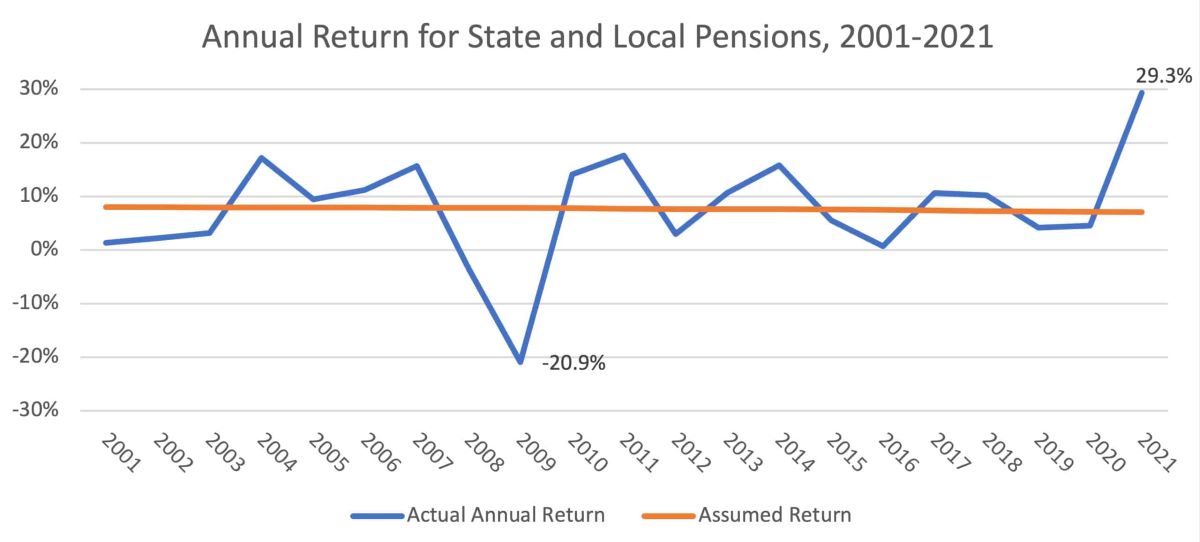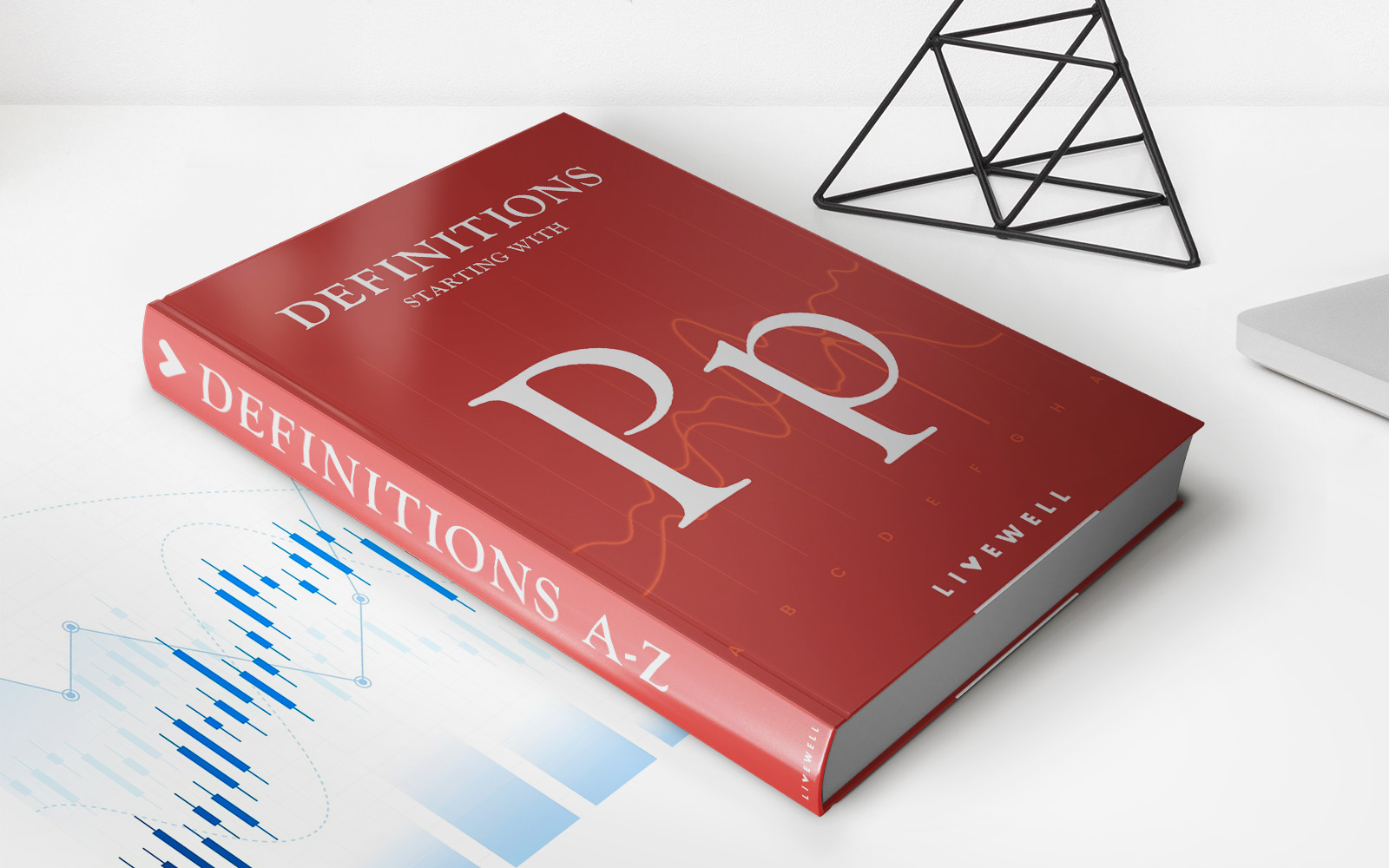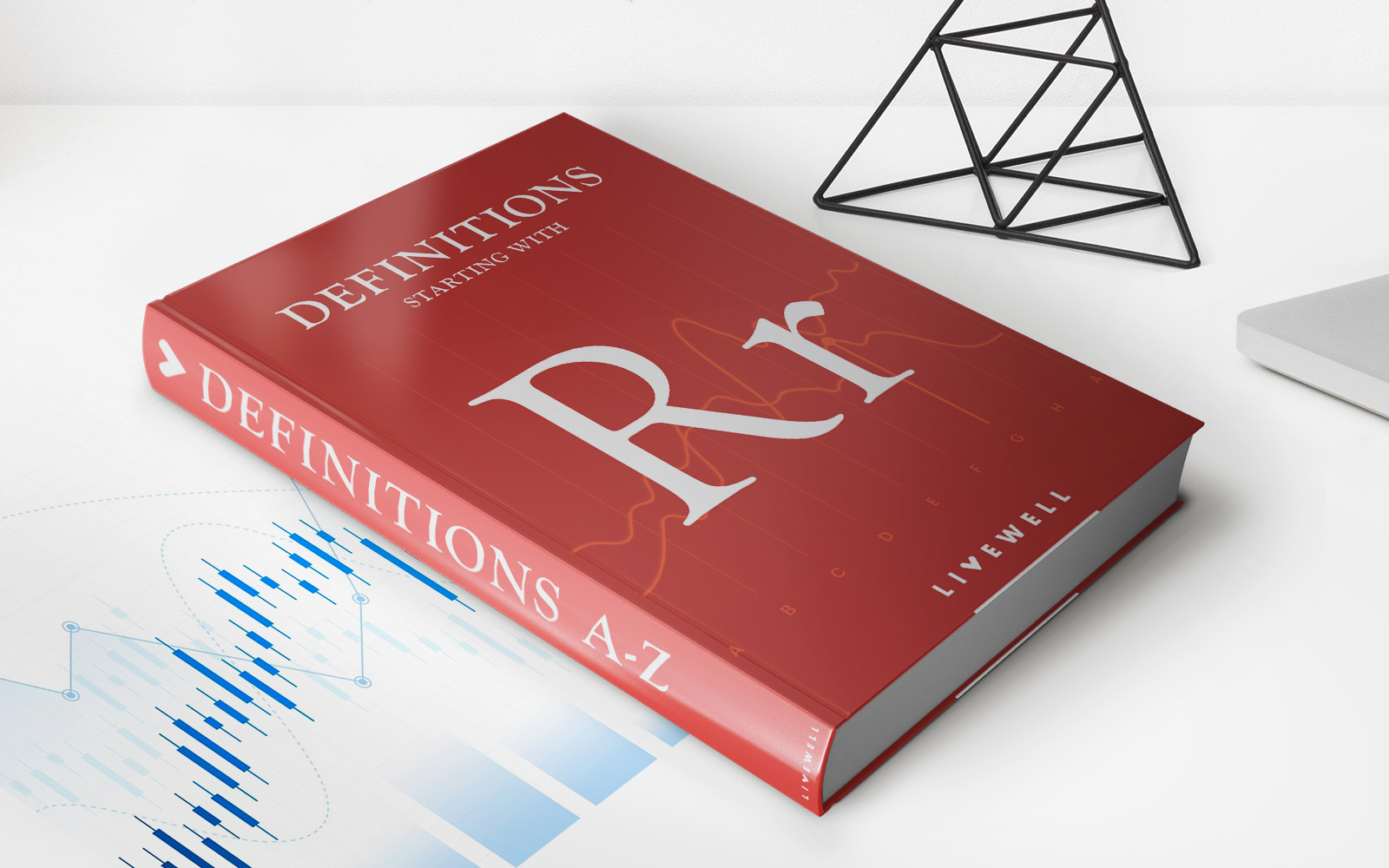

Finance
What Is The FHA Funding Fee
Modified: February 21, 2024
Learn all about the FHA Funding Fee and how it affects your finances. Understand the purpose, calculation, and exemptions of this fee to make informed mortgage decisions.
(Many of the links in this article redirect to a specific reviewed product. Your purchase of these products through affiliate links helps to generate commission for LiveWell, at no extra cost. Learn more)
Table of Contents
Introduction
When it comes to financing a home purchase, there are various fees and costs to consider. One of those fees is the FHA Funding Fee, which is an essential component of Federal Housing Administration (FHA) loans. If you are exploring FHA loan options, it is crucial to understand what the FHA Funding Fee is and how it impacts your mortgage.
The FHA Funding Fee is a fee charged by the FHA to borrowers who take out FHA-insured loans. These loans are popular among homebuyers who may have lower credit scores or little down payment, as they provide more lenient qualifying criteria. However, in order to offer these benefits, the FHA charges borrowers a funding fee to help cover the costs associated with the program. Understanding the purpose and calculation of this fee can help you make informed decisions about your mortgage options.
Throughout this article, we will delve into the details of the FHA Funding Fee, providing a comprehensive overview of its definition, purpose, calculation, exemptions, payment methods, and any recent changes that may affect borrowers.
Before we discuss the specifics of the FHA Funding Fee, it’s important to note that FHA loans are backed by the Federal Housing Administration, which is part of the U.S. Department of Housing and Urban Development (HUD). The FHA’s primary objective is to make homeownership more accessible and affordable, particularly for first-time homebuyers and those with lower incomes. By providing insurance on mortgage loans, the FHA encourages lenders to offer more favorable terms to borrowers who may not qualify for conventional loans.
Now that we have a general understanding of the FHA and its mission, let’s dive into the details of the FHA Funding Fee, uncovering its purpose and how it is calculated.
Definition of FHA Funding Fee
The FHA Funding Fee is a mandatory fee that is charged to borrowers who obtain an FHA-insured loan. It is a percentage of the total loan amount and is typically added to the mortgage. This fee serves as a form of mortgage insurance to protect lenders in case the borrower defaults on their loan.
While FHA loans are beneficial for borrowers with lower credit scores or limited down payment funds, they pose a higher risk for lenders compared to conventional loans. The FHA Funding Fee helps offset this risk by providing financial protection to lenders.
It’s essential to note that the FHA Funding Fee is separate from the mortgage insurance premium (MIP) that borrowers are required to pay. The MIP is an ongoing monthly fee that borrowers pay as part of their mortgage payment, while the Funding Fee is a one-time payment made at the time of loan closing.
The exact percentage of the FHA Funding Fee varies depending on factors such as the loan amount, the type of loan, and the term of the loan. Typically, the fee ranges from 1% to 3% of the total loan amount. It’s important to note that the fee is higher for borrowers who extend the term of their loan beyond 15 years. Additionally, borrowers with a down payment of less than 5% will have a higher funding fee compared to those with a larger down payment.
The FHA Funding Fee is a crucial component of FHA loans as it ensures the financial stability of the program and enables lenders to offer more favorable terms to borrowers. While it is an additional cost to consider when obtaining an FHA-insured loan, it is important to understand its purpose and how it can impact your overall mortgage.
Purpose of the FHA Funding Fee
The FHA Funding Fee serves several important purposes in the realm of FHA-insured loans. Understanding its purpose can help borrowers grasp why this fee is required and how it benefits both lenders and borrowers.
1. Risk Mitigation: FHA loans are designed to make homeownership more accessible, particularly for individuals who may not meet the strict criteria for conventional loans. However, this means that FHA loans inherently carry a higher risk for lenders. The FHA Funding Fee helps mitigate this risk by providing a layer of financial protection for lenders in case borrowers default on their loans. This enables lenders to offer loans to borrowers with lower credit scores or limited down payment funds.
2. Insurance for Lenders: The FHA Funding Fee acts as a form of insurance for lenders. In the event of a borrower defaulting on their loan, the FHA covers a percentage of the lost funds through the insurance provided by the funding fee. This ensures that lenders are still able to recover a significant portion of their investment, reducing their overall risk and facilitating a more stable lending environment.
3. Sustainability of the FHA Program: The FHA program aims to promote homeownership, particularly among first-time homebuyers and those with limited financial resources. By charging the FHA Funding Fee, the program is able to sustain its operations and continue providing affordable mortgage options to a wide range of borrowers. Without this fee, the program’s effectiveness would be compromised, potentially limiting access to homeownership for those who benefit from FHA loans.
4. Financial Cushion: The funds generated by the FHA Funding Fee serve as a financial cushion for the FHA program. This cushion allows the FHA to adapt to changes in the housing market and economic conditions, ensuring that it can continue supporting homeowners and stabilizing the mortgage market in times of economic uncertainty.
It’s important to note that the FHA Funding Fee benefits both lenders and borrowers. While it adds to the overall cost of obtaining an FHA-insured loan, it enables lenders to offer more favorable terms to borrowers who may not qualify for conventional loans. The fee supports the sustainability of the FHA program and helps maintain a stable housing market.
Calculation of the FHA Funding Fee
The calculation of the FHA Funding Fee depends on various factors, including the loan amount, loan term, and down payment percentage. Generally, the fee is a percentage of the total loan amount and is added to the mortgage. Here’s a breakdown of how the FHA Funding Fee is calculated:
1. Determine the loan amount: The first step is to determine the total loan amount for the FHA-insured loan. This is the amount you are borrowing from the lender to finance your home purchase.
2. Assess the loan term: The loan term refers to the duration of the loan, typically measured in years. The FHA Funding Fee is higher for loans with longer terms, specifically for loans with terms exceeding 15 years.
3. Determine the down payment percentage: The down payment percentage is the amount of money you are willing to pay upfront towards the purchase of the home. The lower the down payment percentage, the higher the FHA Funding Fee will be.
4. Utilize the FHA Funding Fee calculator or table: The Federal Housing Administration provides an FHA Funding Fee calculator or table to determine the exact percentage of the fee based on the loan amount, term, and down payment percentage. This calculator helps ensure accuracy and transparency in calculating the fee.
5. Apply the percentage to the loan amount: Once the FHA Funding Fee percentage is determined, it is applied to the total loan amount. The resulting amount is the actual funding fee that will be added to the mortgage.
It’s important to note that the specific calculation may vary based on the guidelines and updates provided by the Federal Housing Administration. Therefore, it is advisable to consult with your lender or utilize the FHA resources to obtain the most accurate and up-to-date information regarding the FHA Funding Fee calculation.
Remember that the FHA Funding Fee is a one-time payment made at the time of loan closing. It is typically rolled into the mortgage, meaning it is financed as part of your loan and paid off over the course of your mortgage term.
Exemptions from the FHA Funding Fee
While the FHA Funding Fee is generally required for all FHA-insured loans, there are certain exemptions and special circumstances where borrowers may be eligible for a partial or full waiver of the fee. These exemptions can help reduce the overall cost of obtaining an FHA loan. Here are some common exemptions:
1. Veterans and Active Duty Military: Borrowers who are veterans or active duty military members may qualify for an exemption from the FHA Funding Fee. Instead, they may be eligible for funding fees associated with other loan programs, such as those offered by the Department of Veterans Affairs (VA).
2. Surviving Spouse of a Veteran: Surviving spouses of veterans who died in the line of duty or as a result of a service-related disability may also be exempt from the FHA Funding Fee. This exemption is typically available to those who are receiving Dependency and Indemnity Compensation (DIC) benefits from the VA.
3. Refinancing within a specific timeframe: Borrowers who are refinancing an existing FHA loan into a new FHA loan within a certain timeframe may be eligible for a reduced funding fee. This exemption is primarily aimed at borrowers who are seeking to take advantage of lower interest rates or other financial benefits.
4. Streamline Refinance: Borrowers who are utilizing the FHA Streamline Refinance program, which allows for a simplified refinancing process, may be eligible for a reduced funding fee. This program is designed to help borrowers refinance their existing FHA loans with minimal paperwork and documentation.
It’s important to note that these exemptions are specific to certain situations, and eligibility criteria may apply. Borrowers should consult with their lenders or loan officers to determine if they qualify for any exemptions or waivers from the FHA Funding Fee.
Furthermore, it’s essential to stay updated with the latest guidelines and policies set forth by the Federal Housing Administration, as exemptions and eligibility criteria may change over time.
When considering FHA loans, it is important to factor in the potential exemptions from the Funding Fee, as they can significantly reduce the overall cost of the loan. Discussing these exemptions with your lender can help you assess your eligibility and make informed decisions regarding your mortgage.
How the FHA Funding Fee is Paid
The FHA Funding Fee is typically paid at the time of loan closing and is added to the total mortgage amount. Here are some key details about how the funding fee is paid:
1. Rolled into the Mortgage: The FHA Funding Fee is generally financed as part of the loan and added to the total mortgage amount. This means that borrowers do not have to pay the fee upfront or out-of-pocket at the time of closing. Instead, it is spread out over the term of the mortgage and paid off through regular monthly mortgage payments.
2. Calculation of Monthly Payments: The funding fee, when rolled into the mortgage, is factored into the monthly mortgage payment. This means that borrowers will pay a slightly higher monthly payment to account for the added cost of the funding fee.
3. Impact on Loan-to-Value Ratio (LTV): When the FHA Funding Fee is rolled into the mortgage, it increases the total loan amount. As a result, it also affects the loan-to-value ratio (LTV), which is the percentage of the home’s value that is financed through the mortgage. A higher loan amount due to the funding fee will result in a slightly higher LTV.
4. Interest Accrual: Since the FHA Funding Fee is added to the mortgage and paid off over the loan term, it accrues interest over the duration of the loan. This means that borrowers will ultimately pay more in interest over the life of the loan due to the inclusion of the funding fee in the mortgage amount.
5. FHA Streamline Refinance: In the case of an FHA Streamline Refinance, where borrowers refinance their existing FHA loan into a new one, the existing funding fee may be refundable or transferable. This means that borrowers may be eligible for a partial refund of the previously paid funding fee or have it credited towards the new loan. The specific requirements and eligibility criteria for refund or credit vary, so it’s crucial to consult with your lender for the most accurate information.
It’s important to note that the FHA Funding Fee payment process may vary slightly based on individual lender policies and loan structures. It is advisable to discuss the details with your lender or loan officer to ensure a clear understanding of how the funding fee will be paid and its impact on your mortgage.
By understanding how the FHA Funding Fee is paid, borrowers can better prepare for the costs associated with their FHA-insured loan and make informed decisions regarding their financing options.
Changes to the FHA Funding Fee
The Federal Housing Administration periodically reviews and adjusts the FHA Funding Fee to ensure the sustainability and effectiveness of the FHA program. These changes can have an impact on the overall cost of FHA-insured loans for borrowers. Here are some key points to consider regarding changes to the FHA Funding Fee:
1. Updates by the Federal Housing Administration: The FHA has the authority to adjust the funding fee based on a variety of factors, including changes in the housing market, economic conditions, and program requirements. These adjustments are typically made to align with the goals and objectives of the FHA program while maintaining its financial stability.
2. Notification of Changes: When changes to the FHA Funding Fee are implemented, the Federal Housing Administration usually provides advance notice to lenders and borrowers. This allows for proper communication and understanding of the new fee structure and any impact it may have on borrowers’ mortgages.
3. Impact on Borrowers: Changes to the FHA Funding Fee can affect the overall cost of obtaining an FHA-insured loan. An increase in the fee percentage will result in a higher upfront cost for borrowers at the time of loan closing. Conversely, a decrease in the fee percentage may provide some cost relief for borrowers. It’s important for individuals considering FHA loans to stay informed about any changes to the funding fee to accurately assess the affordability of the loan.
4. Affordability Considerations: When changes to the FHA Funding Fee occur, borrowers should evaluate the potential impact on their ability to afford the mortgage. For some borrowers, an increase in the funding fee may necessitate adjustments to their budget or consideration of alternative loan options. It is advisable to consult with a mortgage professional or lender to understand the financial implications of the funding fee changes and explore available alternatives, if necessary.
It’s worth noting that changes to the FHA Funding Fee are made with the intention of maintaining the integrity and stability of the FHA program, while also ensuring fair and affordable access to homeownership. These adjustments are part of the ongoing evaluation and improvement process of the FHA program.
As a borrower, staying informed about changes to the FHA Funding Fee is important to understand the potential impact on your mortgage. Regularly reviewing updates from the Federal Housing Administration and working with knowledgeable professionals can help you navigate any changes and make informed decisions regarding your financing options.
Conclusion
The FHA Funding Fee is an essential component of FHA-insured loans, designed to mitigate risk, support lenders, and ensure the sustainability of the FHA program. Understanding the purpose, calculation, exemptions, and payment process of the funding fee is crucial for borrowers who are considering FHA loans.
By charging the FHA Funding Fee, the Federal Housing Administration can provide financing options to borrowers with lower credit scores or limited down payment funds, promoting homeownership for a broader range of individuals. The fee serves as a form of mortgage insurance, protecting lenders in case of borrower default and enabling them to offer more favorable terms to borrowers. While it adds to the overall cost of the loan, the funding fee supports the financial stability and effectiveness of the FHA program.
It’s important for borrowers to stay informed about any changes to the FHA Funding Fee and its potential impact on their mortgage. By regularly reviewing updates from the Federal Housing Administration and consulting with mortgage professionals, borrowers can assess the affordability of FHA loans and explore alternative options if needed.
Ultimately, understanding the FHA Funding Fee empowers borrowers to make informed decisions about their homeownership journey. By considering the purpose, calculation, exemptions, payment process, and any changes to the funding fee, borrowers can navigate the FHA program with confidence and take advantage of the benefits it offers.
As with any financial decision, it is advisable to reach out to qualified mortgage professionals or lenders who can provide personalized guidance and ensure that you have a comprehensive understanding of the FHA Funding Fee and its implications for your specific situation. Armed with knowledge and expert advice, you can navigate the FHA loan process and make well-informed choices for your homeownership goals.














